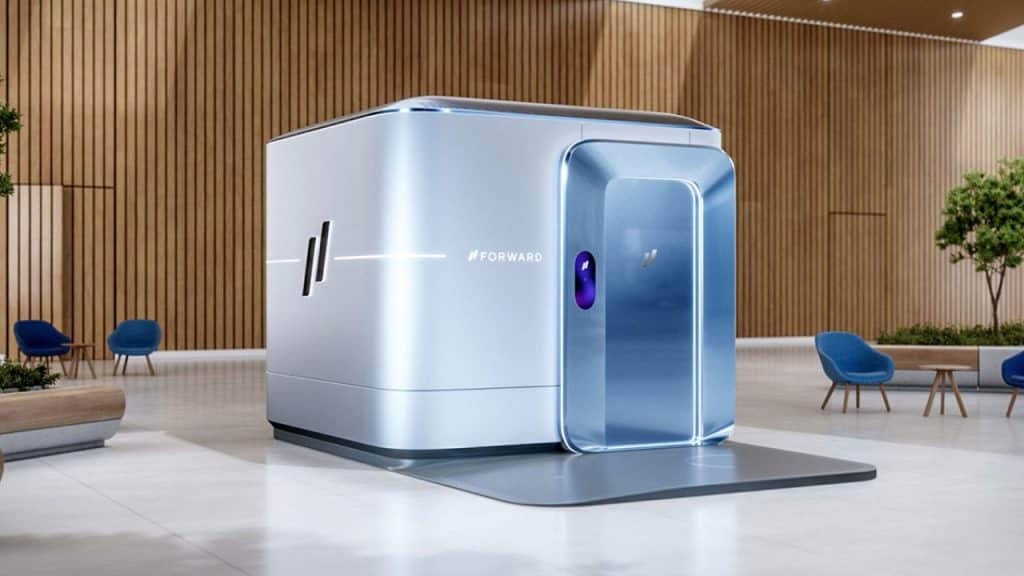They say that AI is taking over and that may or may not be true, but there are definitely places where it can make life more convenient. When it comes to healthcare, it may offer the kind of precision and personalization that can drastically improve our longevity. That’s what investors are hoping as they back what could be a ground-breaking form of self-service care powered by AI (https://longevity.technology/news/forward-raises-100m-to-roll-out-ai-powered-doctors-office/).
Forward, the company behind this newest innovation, describes its CarePods, as it calls its new product, as “the world’s first AI doctor’s office.” With growth capital of $100 million secured and a $99 a month subscription, it certainly looks like a promising development.
So what exactly is an AI doctor’s office? Well, each CarePod has a series of apps to scan your body, test your blood, perform various diagnostics and then create a personalized health plan specifically tailored to your unique needs. It can monitor you in real time, tracking and assessing a whole range of different measurements and markers.
Conditions covered include physical ailments like high blood pressure and diabetes, along with mental health issues ranging from anxiety to depression. In the long term, Forward hopes to expand it further, covering everything from cancer screenings to prenatal care and even providing a more comprehensive risk analysis.
The potential benefits of this technology are obvious. It’s not always easy to get to the doctor, especially if you have complex needs that require a series of different specialists. CarePods will be too expensive for some people, but anything that can improve access to healthcare or give people more control over their health is always welcome.
This isn’t just the creation of tech experts, although there are plenty of big names in AI contributing to that funding pool, including Eric Schmidt and Mustafa Suleyman. That’s on top of the big, blue chip investment funds. Doctors from three top institutions – Johns Hopkins, Harvard and Columbia – all worked on the CarePods. The system may be AI, but behind the scenes are more than 100 primary care practitioners making every important decision.
Currently, there are 19 places in the US where you can find CarePods, but that number will soon grow. From New York and the San Francisco Bay to Philadelphia and Chicago, CarePods will be spreading through malls and gyms and all sorts of other everyday locations.




